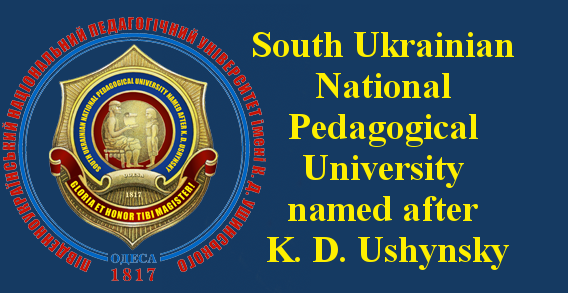On April 15, 2025, the representatives of Ushynsky University took an active part in the work of the II International Conference "AI in Science and Education" (AISE 2025). The University is one of the co-organizers of the conference and for the third year in a row has been actively participating in the organization and holding of all events provided for by the program.
The program committee of the conference from the university includes Vice-Rector for Scientific Work Prof. Hanna MUZYCHENKO, the organizational committee includes Assoc. Prof. Volodymyr Chernykh, Senior Lecturer Vyacheslav KORABLEV and postgraduate student Andrii TUZHYKOV.
During the opening of the conference, the rector of the university, Prof. Andrii KRASNOZHON, addressed all participants of the event with a welcoming speech, and the number of registered people reached above 250, and focused the attention of those present on the importance of studying the impact of AI on the educational process, on people's consciousness, and their professional activities, which are currently in the area of scientific research of scientists of Ushynsky University. Vice-Rector for Research Hanna MUZYCHENKO continued the topic, emphasizing the transformation of the attitude of society, educators and scientists to AI over the past three years regarding the possibilities and directions of their application in the teaching and scientific activities of educators, which are able to facilitate routine work, but require the scientist to critically reflect on the obtained result.
This year, at the plenary session of the conference, the university presented a report by Assoc. Prof. Kateryna NEDIALKOVA “Use of digital tools and AI tools for evaluating and peer-reviewing student work”, which is the result of work in one of the areas of research
“Use of artificial intelligence in the preparation of future teachers for teaching mathematics” (scientific supervisor - Prof. S. A. SKVORTSOVA), which is carried out by the Department of Mathematics and Methods of its Teaching.
The reports by university representatives on the results of research into various aspects of the application of AI in education and science were presented at almost all sectional meetings of the conference. In particular, in the section "AI in Education", Viktor KORABLOV, a postgraduate student of the Department of Pedagogy, Head of the Educational Laboratory of Artificial Intelligence and Robotic Systems, presented the main areas of work of the laboratory on the implementation of AI in the educational process in the report "Integration of diffusion models of AI in the educational process as a driver of creative innovations". The report discussed the "Gamification" academic discipline introduced into the educational process of Ushynsky University, in which students use code assistants (for example, GitHub Copilot or similar open-source solutions) to accelerate the writing of software code, as well as chat bots to create storylines and adapt texts to game scenarios. Already now, groups are working on projects to transform school programs from Ukrainian and foreign literature into interactive visual novels. These can be both individual works and thematic anthologies for younger grades, where collections of short stories are combined into a single storyline.
In parallel, in the course "Graphic Design" students master diffusion models (Stable Diffusion-like) for creating illustrations, iconography and game assets. Using the free services LeonardoAI, KreaAI and SunoAI, as well as local integration of KritaAI, they generate both single elements of methodological support (covers, diagrams, infographics) and entire sets of graphic resources.
In the section "AI in Science" the head of the Department of Mathematics and Methods of its Teaching, Prof. Svitlana SKVORTSOVA, presented her report "Artificial Intelligence in the Scientific Activity of a University Teacher", which is aimed at studying the complex of AI tools for performing the professional activity of a teacher of methodological disciplines of a pedagogical university in accordance with the routine and non-routine tasks of the teacher. In particular, it was about the use of chatbots (Cloud, Perplexity, ChatGPT, Copilot, Gemini, DeepSeek) and special tools for searching and analyzing literature (Semantic Scholar, Google Scholar, Elicit, Scite, etc.), editing text, creating presentations and for other routine tasks of scientific work.
Andrii TUZHYKOV, a postgraduate student at Ushynsky University (specialty 105 "Applied Physics and Nanomaterials"), acted as one of the moderators of the section "Neural Networks and Machine Control". Among the moderators of the four sections provided for by the conference program, he was the only one from the number of postgraduate students. At the same section, he presented the developments of the Department of Innovative Technologies and Methods of Teaching Natural Sciences, as well as his own dissertation research in the format of a report "Machine Learning for Structural Engineering of Graphene Quantum Dots with Controlled Defects".
Overall, the conference contributed to achieving its main goal – to become a platform for stimulating discussions, promoting the strengthening of cooperation between scientific institutions, higher education institutions and public scientific organizations, and developing innovative solutions in the field of AI for science, economy and education.
We thank the team of Ushynsky University for a worthy presentation of the achievements of the university and its scientific schools, departments and laboratories, all our colleagues-partners, co-organizers for cooperation and motivation for new achievements. We thank the Armed Forces of Ukraine for the opportunity to work, hold conferences and create new scientific results.






